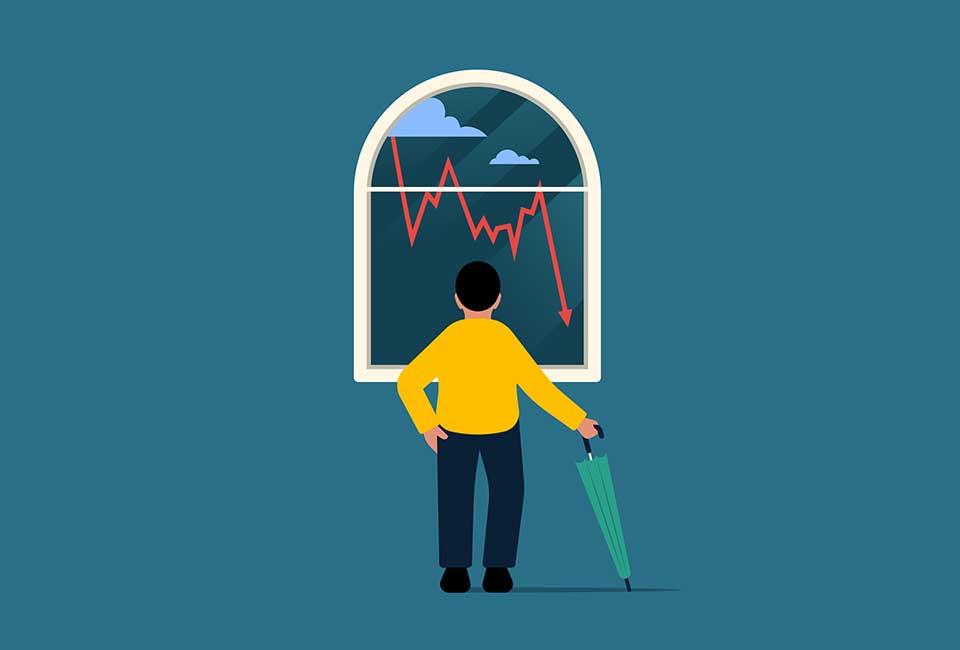
The probability of catastrophic natural disasters is increasing. The consequences are human tragedies and severe losses in the area of infrastructure. The effects are also affecting the stock markets.
Extreme weather events caused $250 billion in global losses in 2023, of which only $95 billion was insured. Despite all the tragedy, there are opportunities for investors. Companies that are involved in rebuilding destroyed infrastructure or insurance companies that specialize in hedging against climate risks are seeing increasing demand. At the same time, companies and funds with a high ESG focus are becoming more important for investors, as Hans Selleslagh, Swiss spokesperson for the online broker Freedom24, explains.
While insurance stocks fall at first, other companies benefit
The scale of extreme weather events such as heavy rain, hurricanes or flooding is becoming more and more painful. After the first major shock and the clean-up work, the question is often how much funds are available for relief and who pays for losses. Insurance companies play a decisive role in this, because they are faced with the challenge of paying large payouts. «But anyone who thinks that this is why insurance companies get into trouble is wrong», says Hans Selleslagh, Swiss spokesperson for the online broker Freedom24. And he continues, «Research shows that, while these companies experience slightly negative returns after major disasters, the overall impact is less severe than some would expect.» After hurricanes, for example, losses tend to be less than 1%, but it depends on the severity of the natural disaster. In the 2017 hurricane season, for example, Hurricanes Harvey, Irma, and Maria caused losses of $125 billion. While insurance stocks initially fell due to claims payments, the prices of companies such as Home Depot and Lowe’s, which supplied materials for reconstruction, rose sharply.
Storms on the way: which sectors are particularly volatile?
An interesting question for investors is how markets tend to behave when weather extremes are predicted. Selleslagh says: «Equity markets tend to notice the effects quickly. Sectors that are closely linked to physical infrastructure, such as energy, agriculture, and insurance, tend to be the first to be affected by volatility. For example, if a hurricane is forecast in the Gulf of Mexico, oil prices can soar. Similarly, agricultural stocks can move when there is a risk of crop damage.» For example, during Hurricanes Harvey and Irma, which significantly impacted US oil production, the volatility index rose sharply, pointing to growing investor fears in the near term. But as damage estimates began to stabilize, and turned out to be lower than expected, the S&P 500 rebounded quickly, illustrating the complex interplay between fear, on the one hand, and relief from recovery, on the other, in market sentiment. Because damage and disruption usually does not end in a few days, but, on the contrary, often reverberate for a long time, they also have long-term effects on stock markets. «Investors tend to view extreme weather events with great concern because they directly affect asset values and cause long-term problems», says the Freedom24 expert.
Curse and Bless: Which Industries Offer Opportunities
While, of course, no one wants storms and they cause a lot of suffering, the statistically higher probability of them occurring is now a fact of life compared to previous years. Certain industries are particularly relevant in connection with natural disasters, so there are also opportunities for investors, such as construction and infrastructure. «Companies that specialize in disaster recovery often see an increase in demand. For example, construction equipment company Caterpillar, for example, can see an increase in orders after severe storms», explains Selleslagh. He also brings the renewable energy area to the meeting, as well as companies that are working on technological solutions for smart infrastructure and early warning systems for floods and storms. And insurance companies, despite massive payment obligations in the short term, would also offer opportunities and experience increasing demand if, for example, they expanded their offer to include special insurance against natural disasters – be it floods or crop failures after droughts.
Sustainability and ESG focus are high prices for investors
Given the frequency of extreme weather events, investors are increasingly taking these and the resulting risks into account in their decisions. «Investors are increasingly looking for companies where sustainability plays an important role», says Selleslagh, adding: «Companies that meet high standards in ESG areas are often considered more resilient to the risks of climate change.» Funds based on ESG criteria, such as the MSCI ESG Leaders Index, have achieved better returns than traditional market indices in recent years, Selleslagh concludes.
Freedom24 is an international online broker that operates the investment platform Freedom24.